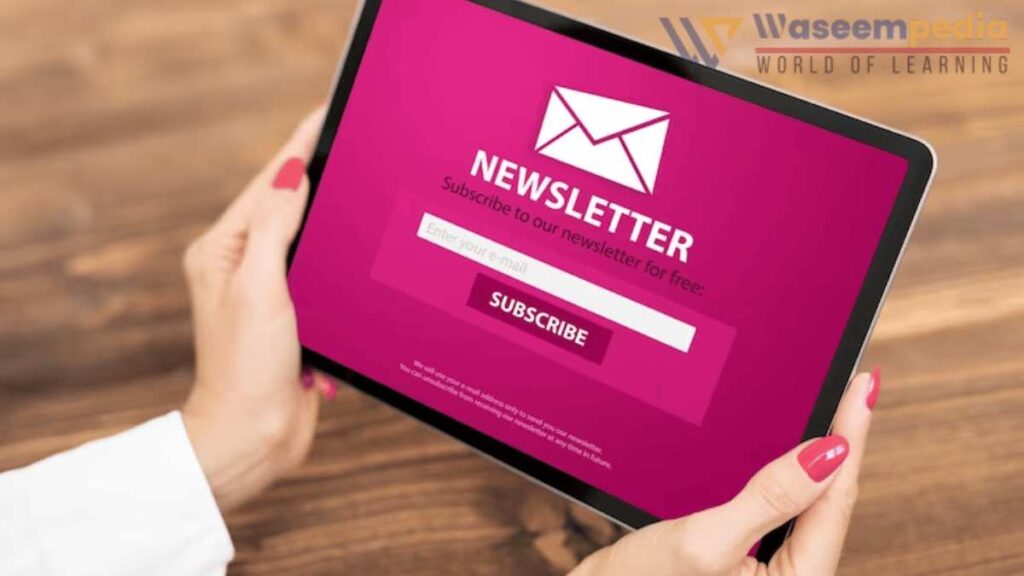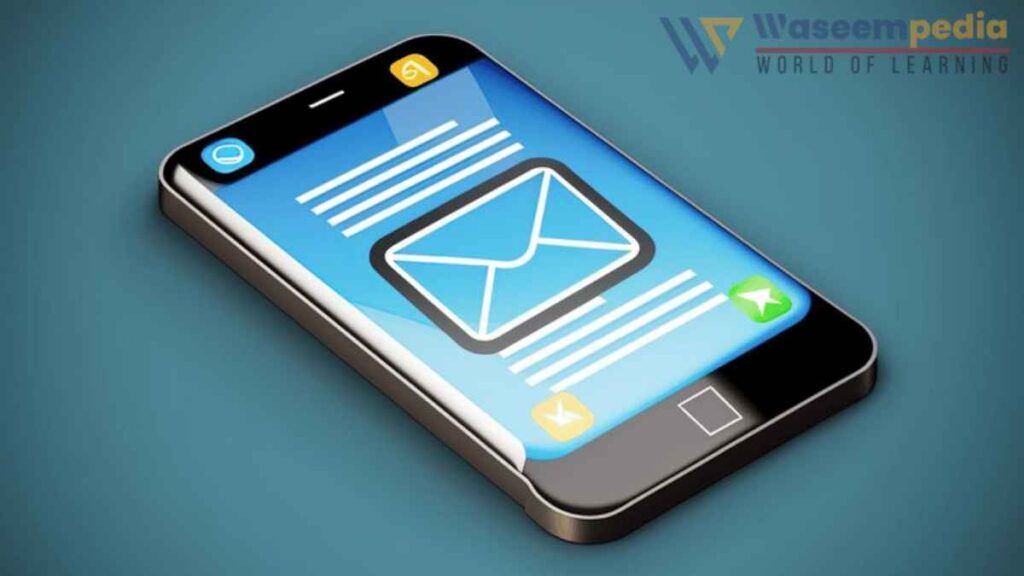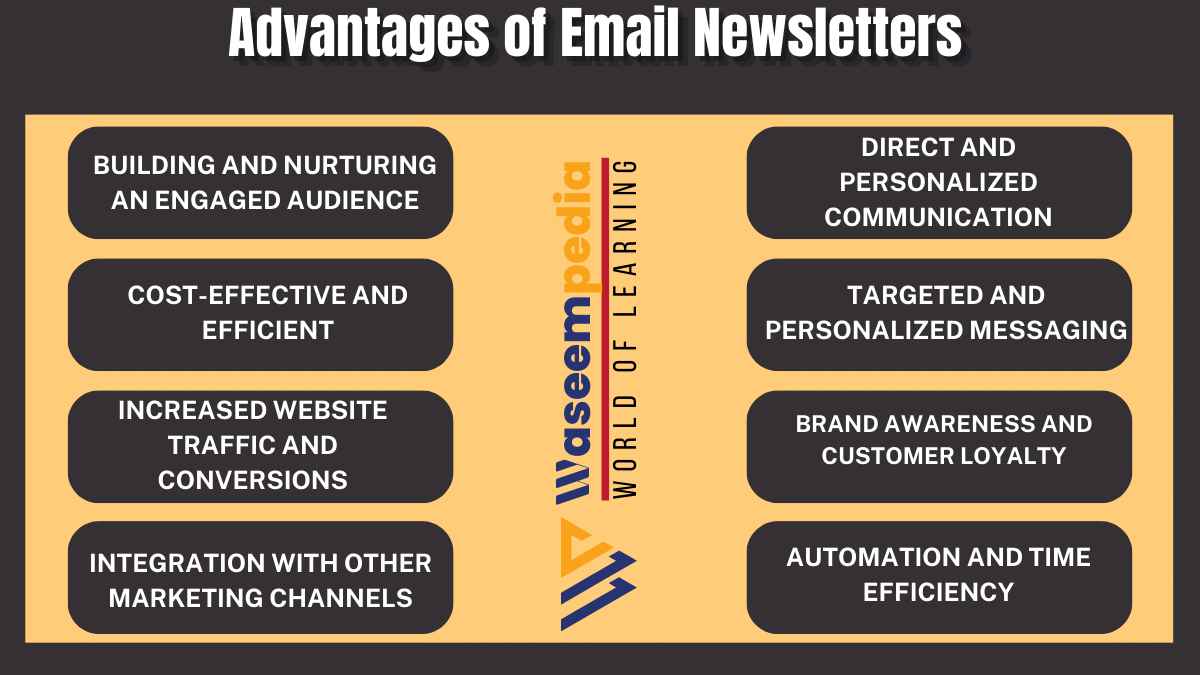Email newsletters offer numerous advantages for businesses and organizations looking to establish strong connections with their audience. From building engaged readership and driving website traffic to enhancing brand awareness and nurturing customer relationships, newsletters play a crucial role in effective communication strategies.
In this article, we will explore the benefits of email newsletters and how they can positively impact your communication efforts

By leveraging the power of email newsletters, businesses can achieve their marketing goals and foster long-term success. Email newsletters have become a popular and effective way for businesses and organizations to communicate with their audience.
They offer numerous advantages of email that contribute to building relationships, driving engagement, and achieving marketing objectives. Email offers many advantages in Tracking and Analytics , Time Management , Email for Sales, Personal Communication and Email for Networking.
The Power of Email Newsletters
Email newsletters provide a valuable opportunity for businesses and organizations to connect with their audience on a regular basis. By delivering curated content, updates, and promotions directly to subscribers’ inboxes, email newsletters help build engagement, foster loyalty, and strengthen relationships.
13 Advantages of Email Newsletters
13 Advantages of Email Newsletters are given below
1. Building and Nurturing an Engaged Audience
One of the significant advantages of email newsletters is their ability to build and nurture an engaged audience. By offering valuable and relevant content, newsletters attract subscribers who are genuinely interested in your brand or industry. Over time, consistent communication through newsletters helps to establish a loyal and engaged readership.
2. Direct and Personalized Communication
Email newsletters enable direct and personalized communication with your audience. Unlike social media or other marketing channels, newsletters reach subscribers’ inboxes, allowing for a more intimate and focused interaction.
With proper segmentation and personalization strategies, newsletters can deliver tailored content that resonates with individual subscribers, driving higher engagement and response rates.
3. Cost-Effective and Efficient
Compared to traditional marketing channels, email newsletters are cost-effective and efficient. There are no printing or postage costs involved, and the process of creating and sending newsletters can be streamlined through email marketing platforms.
This makes newsletters an affordable option for businesses of all sizes, allowing them to communicate with their audience without breaking the bank.
4. Increased Website Traffic and Conversions
Email newsletters serve as a powerful driver of website traffic. By including compelling calls-to-action and relevant links within the newsletter content, businesses can direct subscribers to their website, blog posts, product pages, or other desired destinations.

This increase in website traffic not only boosts visibility but also creates opportunities for conversions and sales.
5. Brand Awareness and Customer Loyalty
Consistently delivering valuable content and updates through newsletters helps to strengthen brand awareness and foster customer loyalty. By providing subscribers with useful information, industry insights, or exclusive offers, newsletters keep your brand top-of-mind and build a sense of trust and loyalty among your audience.
6. Measurable and Trackable Results
Email marketing platforms provide comprehensive analytics and tracking features that allow you to measure the success of your newsletters. You can track metrics such as open rates, click-through rates, and conversion rates to assess the effectiveness of your newsletter campaigns.
These insights help you refine your strategies, optimize your content, and make data-driven decisions.
7. Targeted and Relevant Content
Email newsletters offer the opportunity to deliver targeted and relevant content to specific segments of your subscriber list. By segmenting your audience based on their interests, File Sharing ,demographics, or engagement levels, you can customize the newsletter content to cater to their specific needs and preferences.
This level of personalization enhances the impact of your newsletters and increases their relevance to the recipients.
8. Establishing Authority and Thought Leadership
Through well-crafted and informative content, newsletters allow businesses to establish themselves as authorities and thought leaders in their respective industries. By sharing valuable insights, expert opinions, and industry trends, newsletters position your brand as a reliable source of information and expertise. This helps to build credibility and attract a loyal audience who values your expertise.
9. Enhancing Customer Relationships
Email newsletters play a vital role in enhancing customer relationships. They provide a platform for ongoing communication, allowing you to stay connected with your customers beyond the point of sale.

By nurturing these relationships through newsletters, you can deepen customer loyalty, encourage repeat purchases, and foster long-term customer satisfaction.
10. Mobile-Friendly and Accessible
In today’s mobile-driven world, email newsletters offer the advantage of being mobile-friendly and easily accessible. With a significant portion of email opens occurring on mobile devices, newsletters are designed to display properly on various screen sizes and operating systems. This ensures that your content reaches and engages your audience, regardless of the device they use.

11. Integration with Other Marketing Channels
Email newsletters can seamlessly integrate with other marketing channels, amplifying their impact. Whether it’s social media, content marketing, or events, newsletters can be used to promote and support your other marketing efforts. By coordinating your messaging across different channels, you create a cohesive brand experience for your audience.
12. Automation and Time Efficiency
Email marketing platforms offer automation features that make creating and sending newsletters efficient and time-saving. Automated workflows can be set up to deliver newsletters at predetermined intervals or triggered by specific user actions. This automation streamlines the process, allowing you to focus on other aspects of your marketing strategy while ensuring consistent communication with your audience.
13. Compliance with Privacy Regulations
Email newsletters adhere to privacy regulations, such as the General Data Protection Regulation (GDPR) and the CAN-SPAM Act. By following best practices and obtaining proper consent from subscribers, businesses can maintain compliance and build trust with their audience. Privacy regulations ensure that subscribers’ data is protected, and they have the option to opt out if desired.
Related FAQ’s
How can I measure the success of my email newsletters?
Email marketing platforms provide analytics that allow you to track metrics such as open rates, click-through rates, and conversions. These insights help you assess the effectiveness of your newsletters and make data-driven decisions.
Can I personalize the content in my email newsletters?
Yes, email newsletters can be personalized to cater to specific segments of your subscriber list. By leveraging audience segmentation and customization features, you can deliver targeted and relevant content to different groups of subscribers.
Are email newsletters effective for building brand loyalty?
Yes, email newsletters are an effective tool for building brand loyalty. By consistently delivering valuable content and updates, newsletters help establish trust, keep your brand top-of-mind, and foster long-term relationships with your audience.
What are the benefits of newsletter in an organization?
The benefits of a newsletter in an organization include improved communication, increased engagement, enhanced brand awareness, and better relationships with customers or employees.
What is the main purpose of a newsletter?
The main purposes of a newsletter are to inform, engage, and build relationships with its target audience.
What are the aims of newsletter?
The aims of a newsletter are to share valuable information, promote products or services, and establish and maintain communication with the audience.

